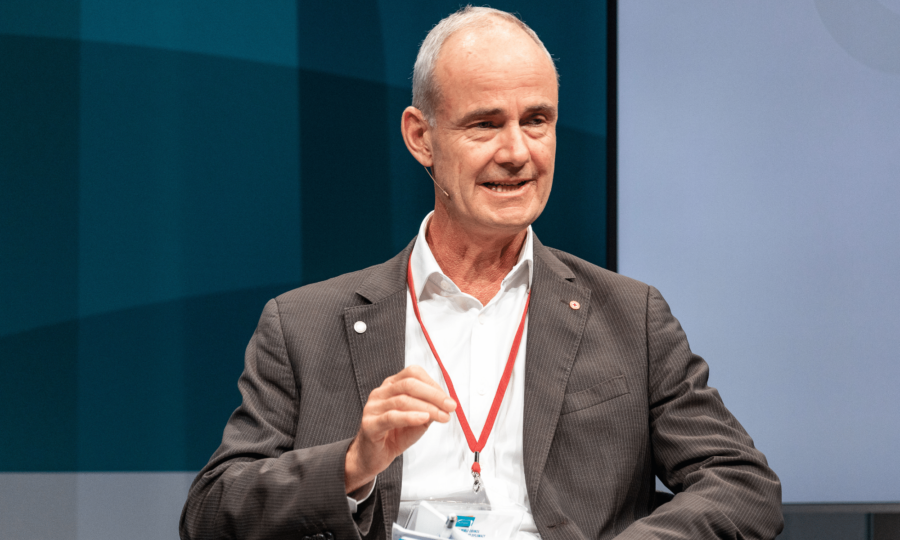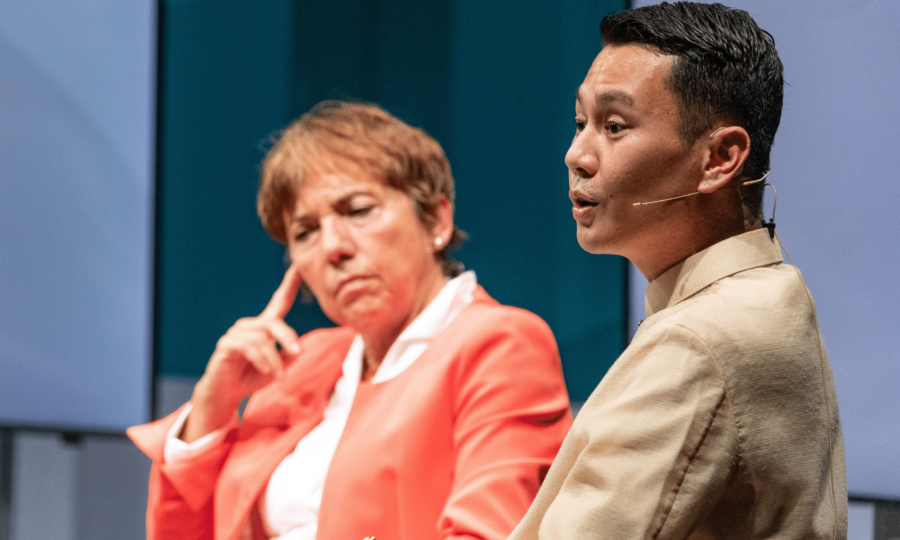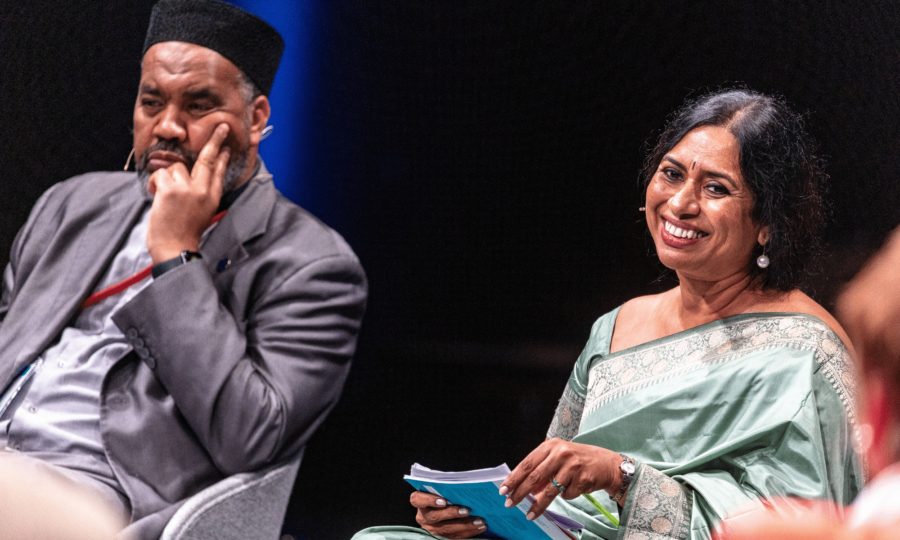Faith, Diplomacy and Public Health: Realizing Transformative Partnerships
20211005The session Faith, Diplomacy and Public Health: Realizing Transformative Partnerships, focused on how partnerships can be formed between traditional diplomats and religious leaders, especially in the context of public health. Keynote speaker H.E. Dr. Tedros Adhanom Ghebreyesus, Director-General, WHO emphasized that the COVID-19 pandemic has both brought people together and driven them apart like never before, and that leaders in faith and health cannot be neutral in the face of disregard for human dignity, growing inequality, and preventable harm. Keynote speaker H.E. Mr. Filippo Grandi, United Nations High Commissioner for Refugees, UNHCR spoke about three global crises that particularly impact refugees– COVID, conflict and climate. He advocated for faith communities to lead the way in welcoming and supporting refugees and in promoting faith over fear of the other.

Dr. Gilles Carbonnier, Vice President, ICRC, Dr. Kezevino (Vinu) Aram, President, Shanti Ashram, Co-Moderator, Religions for Peace, Hindu, India, Bishop Margot Käßmann, Former Chairperson, Evangelical Church of Germany, Co-President, Religions for Peace, Christian, Germany, Mr. Imam Mohamed Magid, Executive Imam, All Dulles Area Muslim Society (ADAMS) Center, Co-President, Religions for Peace, Muslim, United States, and Dr. Renz C. Argao, Director, Argao Center for Psychological Services, Coordinator, Religions for Peace International Youth Committee, Christian, Philippines shared preliminary remarks and before responding to questions from the audience.
The panelists highlighted the untapped potential at global, national and community levels to work with faith leaders to promote public health practices and science. Religious leaders have authority and respect in their own communities, which makes them great partners to deliver compassionate, accurate public health information. To that end, religious leaders must have access to good information and be held accountable for spreading harmful misinformation. Religious leaders also have an obligation to advocate for more vulnerable communities. In the context of COVID-19, many religious leaders have spoken out for global vaccine equity, and the power of religious communities to influence global public health decisions can be leveraged.

The panelists agreed that diplomats and religious leaders are not as effective on their own, but are stronger when working together. Diplomats can link religious communities to valuable resources and partners, and religious leaders can help diplomats and humanitarian organizations be accepted into communities. Many transformational and collaborative partnerships have come out of the pandemic response, and have the potential to be sustained to promote public health in a post-pandemic world.
The panelists also spoke about the importance of recognizing the mental, social, and spiritual aspects of health. The COVID-19 pandemic has challenged the well-being of children, families, and communities, and faith and religious leaders can help to provide spaces for sharing stories and mourning post-pandemic. Religious leaders have a unique ability to care for the spiritual health of their communities, and must be given resources to do so.

Finally, the panel discussed the topic of reproductive health and violence against women. The panelists advocated for religious communities to break the silence around family planning, sex, and violence against women. Religious communities must work to provide safe spaces for these conversations, as well as facilitate education on sex, reproductive health, and healthy relationships. Religious leaders must also combat the stigma and misinformation around sex in their communities, and elevate the voices and experiences of women.
This engaging and topical discussion can be viewed in full here.